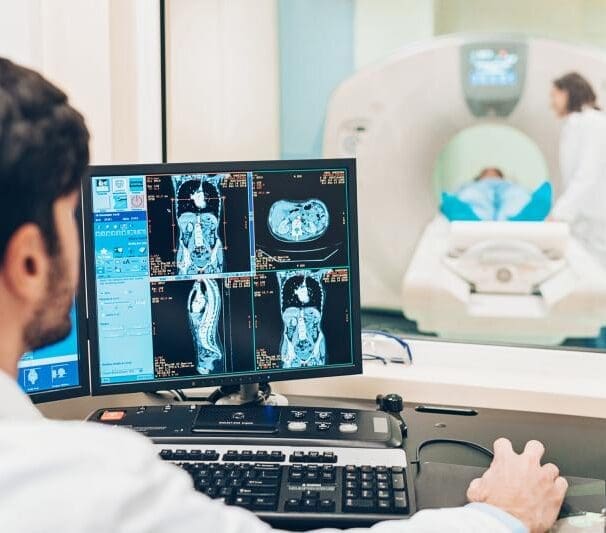HealthProviders DB is a comprehensive database of healthcare providers, including a complete directory of all Nuclear Medicine Radiologic Technologists.
Radiologic Technologist Healthcare Taxonomy Code 2471N0900X
As of today, the following are the total number of Nuclear Medicine Radiologic Technologists nationally, in your State, and near your location.
Select a State below to view the list by State. Additionally, you can narrow the list by city, among other options, from the Filter Panel, which you can open by clicking the vertical ellipses ⋮ in the upper right corner of the app.
Alaska – Alabama – Armed Forces Pacific – Arkansas – American Samoa – Arizona – California – Colorado – Connecticut – District of Columbia – Delaware – Florida – Federated States of Micronesia – Georgia – Guam – Hawaii – Iowa – Idaho – Illinois – Indiana – Kansas – Kentucky – Louisiana – Massachusetts – Maryland – Maine – Marshall Islands – Michigan – Minnesota – Missouri – Northern Mariana Islands – Mississippi – Montana – North Carolina – North Dakota – Nebraska – New Hampshire – New Jersey – New Mexico – Nevada – New York – Ohio – Oklahoma – Oregon – Pennsylvania – Puerto Rico – Palau – Rhode Island – South Carolina – South Dakota – Tennessee – Texas – Utah – Virginia – Virgin Islands – Vermont – Washington – Wisconsin – West Virginia – Wyoming
Medicare
The following are the total number of Nuclear Medicine Radiologic Technologists who accept Medicare in your State, the number who have opted out of Medicare, and the total number excluded from participation in Medicare nationwide.
The diagram below shows all the Nuclear Medicine Radiologic Technologists across the country, represented by blue bubbles. The larger the bubble, the greater the concentration of providers in that area. Red bubbles represent Medicare-excluded providers, with the larger bubbles indicating a higher percentage of excluded providers in that region. You can change the bubble size to be based on exclusions from the Size menu.
What do Nuclear Medicine Radiologic Technologists do?
Nuclear medicine technologists prepare and administer radioactive drugs called radiopharmaceuticals to patients for diagnostic imaging and treatment.
They operate specialized equipment, such as gamma cameras and PET scanners, to create images that reveal how organs function, helping diagnose and treat conditions such as cancer and heart disease.
A key part of their role involves patient preparation, administering the radioactive drugs, ensuring radiation safety protocols are followed, and providing images and data for physician interpretation.
What they do
Patient Care: Explaining the procedure to patients, answering questions, and ensuring their comfort and safety during the process.
Radiopharmaceutical Handling: Preparing, calculating dosages, and safely administering radioactive drugs to patients for diagnostic scans or therapeutic procedures.
Imaging Procedures: Operating specialized imaging equipment like gamma cameras, PET, and SPECT scanners to produce images of the body’s internal structures and functions.
Radiation Safety: Implementing and maintaining strict radiation safety protocols to protect themselves, patients, and other staff from unnecessary exposure.
Image and Data Management: Reviewing, processing, and manipulating digital images, and providing the resulting data for physicians to use in diagnoses and treatment plans.
Equipment Maintenance: Maintaining and calibrating imaging and monitoring equipment to ensure they function correctly and produce high-quality images.
Assess Organ Function: They provide images that reveal how organs, such as the brain, heart, and lungs, are functioning, not just their anatomical structure.
Diagnose Conditions: They help diagnose a wide range of medical conditions, such as heart disease, neurological disorders, hormonal imbalances, and various types of cancer.
Monitor Treatment: They monitor disease progression and the effectiveness of cancer treatments by tracking the distribution of radiopharmaceuticals in the body.

